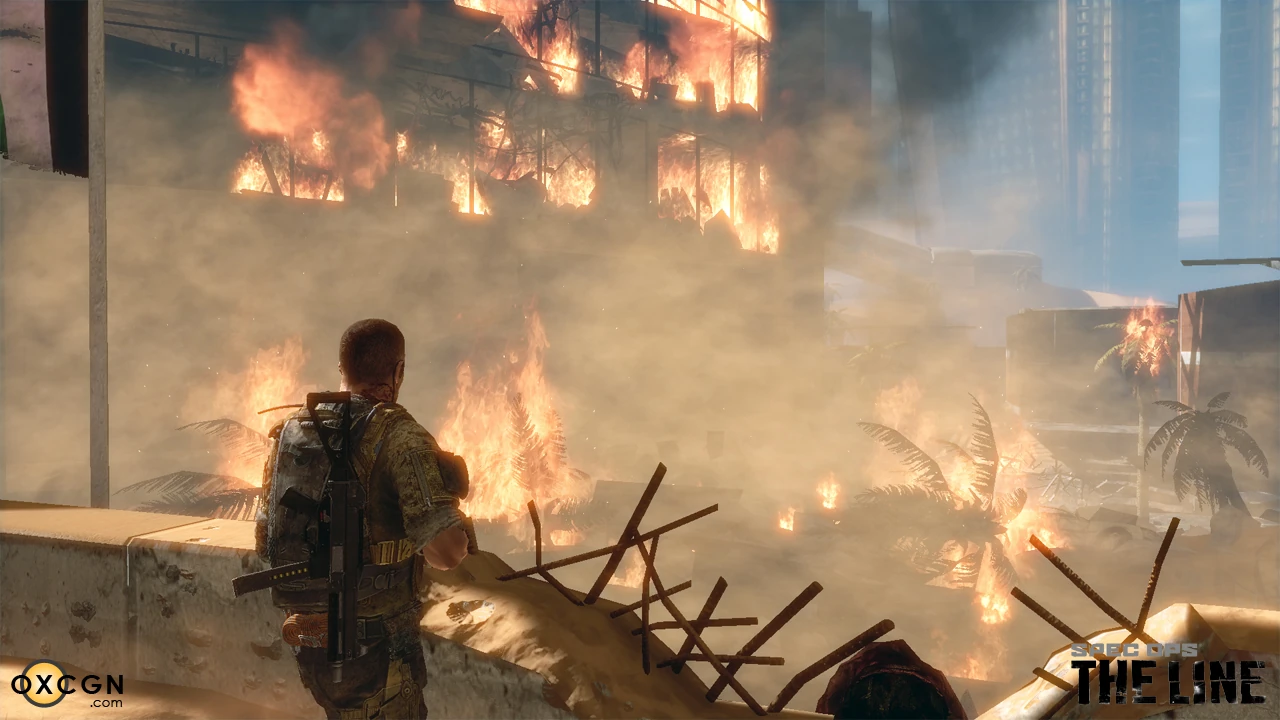

Riggs believes this fate will befall the United States if the Middle East as a whole declares war on them, which is why he tries to kill everyone in Dubai through dehydration to cover up the entire affair. After the End: For the city of Dubai anyway.He never made attempts to fully assess the situation, or simply drop his weapons and approach unarmed to explain the situation (though, granted, the latter would likely have gotten him killed). An Aesop: The biggest (and most subtle) Aesop is an old one - "A little bit of knowledge is a dangerous thing." All of Walker's decisions were based on only partial information ( a situation that can easily happen while in a war zone) - from who he should side with ( Enemy Mine isn't always a good option - in fact, it tends to be a crapshoot) to what he should do.Later, after committing a war crime by wiping out a garrison filled with refugees, the loading screens eventually begin mocking the player for it themselves. Addressing the Player: The game registers the name of the profile you are playing it on, and has that name listed as " Special Guest" in the opening credits.Action Prologue: The game begins In Medias Res with Delta aboard a helicopter, being pursued by the 33rd.The real Konrad grew horrified at what he had done to Dubai and was Driven to Suicide long before Walker himself and Delta arrived. Above Good and Evil: The hallucinatory Konrad seems to think of himself as a savior and does not think of himself as evil or good.To summarize: in most ordinary CoD-likes, your character is always a quintessential American hero, the USA (and sometimes the UK) always saves the world, and your enemies are always non-Westerners in this game to the contrary, your character is ambiguously evil, and it's Americans versus Americans who, in their belief that they're doing the right thing, ultimately ruin everything. However, as the story develops, it slowly reveals itself to actually be a deconstruction of military shooter games, which criticizes the genre for providing players with an unrealistic and immoral Power Fantasy through the glorification of war - and criticizes the player for participating. Delta Force operators who gun down wave after wave of "insurgents" in a Middle Eastern desert setting. On the surface, Spec Ops: The Line appears to be just another generic, dime-a-dozen Call of Duty-like cover shooter, with the player assuming control of a squad of gruff U.S.

Then a weak distress signal is picked up, and a three-man Delta Force team is sent to find Konrad and rescue survivors, led by Player Character Captain Martin Walker ( Nolan North), who previously served under Konrad in Afghanistan.Įxcept that things are not what they seem, and are about to get worse. After six months of silence, the Army fears Konrad and his men were lost in the destruction of the city. Defying orders to withdraw, Konrad attempted to lead a caravan of refugees out of Dubai, just before a massive sandstorm turned the city into a post-apocalyptic wasteland. the Damned 33rd), to assist in the evacuation of Dubai. US Army Colonel and founding member of Delta Force John Konrad ( Bruce Boxleitner) volunteered his unit, the 33rd Infantry Battalion (a.k.a.
#Spec ops the line trophies ps3
Also it didn’t sell.Spec Ops: The Line is a 2012 cover-based Third-Person Shooter for PC, Xbox 360, PS3 and macOS, created by Yager Development, and the latest game in the Spec Ops series, though it contains no story elements from previous installments.ĭubai is under threat from some of the most violent sandstorms in history.

In a 2012 piece on Polygon, Cory Davis, the lead designer, described the multiplayer on it as ‘a cancerous growth’ and that ‘the game mechanics were raped to make it happen, and it was a waste of money.’ Ouch for the multiplayer.īecause it was a brutal, painful development & everyone who worked on it would eat broken glass before making another. This isn’t the first time the Spec Ops team has been open about their feelings on the development process. As the game’s lead writer, Williams is responsible for one of the most unique stories a shooter has ever had, but fans of it are just going to have to keep replaying the original. ‘Because it was a brutal, painful development & everyone who worked on it would eat broken glass before making another. One such person asked writer Walt Williams why it won’t get a sequel, and Williams gave a pretty clear cut reply. It wasn’t a commercial blockbuster, though, although a lot of people still think of it fondly. Spec Ops: The Line was a shooter with a difference, and what precisely that difference was I’m not going to spoil for you, because it was pretty cool (but suffice it to say: check out Spec Ops: The Line).


 0 kommentar(er)
0 kommentar(er)
